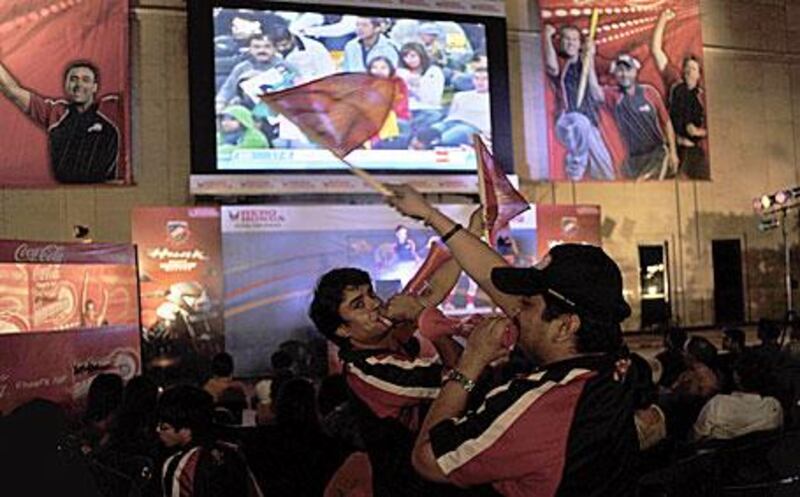Tuesday night's Simply South clash in the Indian Premier League (IPL) had jokingly been billed as curd-rice (Chennai Super Kings) against bisi bele bath (Royal Challengers Bangalore). Almost overnight though, both regional favourites have been overshadowed by freshly made appam and stew and vada pav, staples of Kerala and Maharasthra respectively. With Kochi acquiring an IPL team for the scarcely believable sum of US$333 million (Dh1.2bn), southern IPL evenings will never be the same again.
And with the Pune franchise bought by the Sahara Group for $370m, the combined valuation of the two new IPL teams exceeds what most bidders have offered for Liverpool, the most successful team in English league football history. To put things into further perspective, Randy Lerner acquired a 60 per cent stake in Aston Villa for around $94m. Villa are seven-time English champions and one of only four English teams to have been crowned champions of Europe.
In short, with its third season not yet half-way through, the IPL franchises are commanding the same sort of money established clubs in England's Premier League, the most expensive national league in the world's most popular sport. Bear in mind, too, that the Mumbai Indians, the most expensive of the current teams, cost Reliance Industries "only" $111.9m back in 2008. Sahara's interest in the IPL was an open secret, but even Lalit Modi, the driving force behind the league, was pleasantly surprised by the extent of their interest.
"I thought the bids would be in the region of $320-325m, but this is a little above my expectations," he said after Sunday's auction. "Everybody believed the $225m figure I set [as a minimum bid] was way too high, but I always felt it was low and the eventual outcome has been very pleasing." As for Sahara themselves, they do not see the investment as a huge risk, even in an economically volatile world.
"One has to understand the grand success of IPL," said Subrata Roy, Sahara's chairman. "When it started, even a valuation of $100m-plus was very high, and now valuations of the eight existing teams have gone up three to four times within two tournaments." Sahara were sponsors of the Indian cricket team's shirt for five years, and are known to many people in the country. The same cannot be said of the Rendezvous consortium that edged out more likely buyers such as the Adani group by coughing up the $333m to acquire the Kochi franchise .
Most people were clueless as to the identity of those behind Rendezvous until Modi revealed that it consisted of a Vikas Venugopal, Rosy Blue Diamonds, Mukesh Patel, Ravi and Sanjay Gaikwad and Anchor Switches. Given that Kochi does not yet have a purpose-built stadium, Modi has already announced that alternate "home" venues will be found for the team. With each team playing nine home games from next season, do not be surprised to see an IPL team coming to a venue near you. Abu Dhabi, Dubai and Sharjah all have cricket stadiums, and a flight from Kochi to the UAE takes only about as much time as one heading to Delhi or Kolkata.
In some ways, Kerala is also something of a final frontier for cricket. Shanthakumaran Sreesanth may have got the odd headline in recent times and Tinu Yohannan played four Tests before him, but traditionally it has always been football territory. Back in the 1960s, '70s and '80s, matches featuring local sides would fill 40,000-seater stadiums. The most famous sports personalities from Kerala have been an athlete - PT Usha missed an Olympic medal by 1/100th of a second in Los Angeles in 1984 - and a volleyball player, Jimmy George, who died in a car crash while playing professionally in Italy.
In 2011, with millions around the world watching, the next Kerala hero could be hitting sixes or knocking over stumps. @Email:sports@thenational.ae Dileep Premachandran is the associate editor at Cricinfo and the Asian cricket correspondent of The Guardian.





